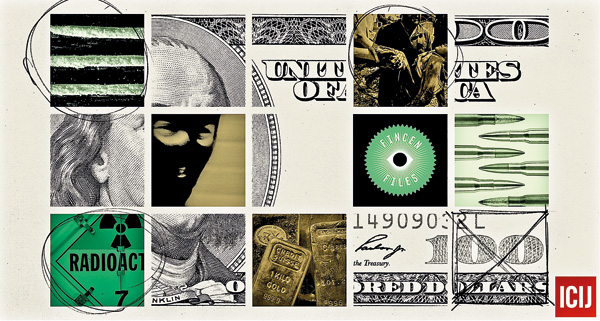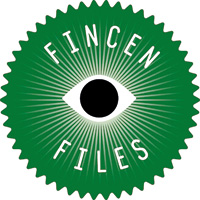News
FinCEN files: Lanka lumped with high risk nations
Several international banks have flagged Sri Lanka as a high risk jurisdiction in relation to money laundering, according to leaked documents analysed by hundreds of journalists worldwide.

Courtesy ICIJ/BuzzFeed News
By virtue of being lumped alongside other high risk countries such as the United Arab Emirates, Saudi Arabia and Cyprus, scores of legitimate financial transactions by Sri Lankan entities have also been singled out as “suspicious”. But the same banks continued to move dirty money for drug cartels, corrupt regimes, arms traffickers and criminals of many other countries.
This indicates that the compliance systems of these banks at the time the Suspicious Activity Reports (SARs) were lodged (1999 to 2017) needed considerable fine-tuning.
The Sunday Times was part a global effort led by the International Consortium of Investigative Journalists (ICIJ), together with BuzzFeed News and 108 other media partners in 88 countries. We spent 16 months organising and analysing leaked documents dubbed the FinCEN files.
The stories broke around the world this week. The files are Suspicious Activity Reports (SARs) which are records of money movements that banks compile and submit to the United States Financial Crimes Enforcement Network of the US Department of the Treasury, when they suspect a possible suspicious activity.
They show that five banks —JPMorgan Chase, HSBC, Standard Chartered Bank, Deutsche Bank and the Bank of New York Mellon—moved illicit cash for shadowy characters and criminal networks even after U.S. authorities fined these financial institutions for earlier failures to stem flows of dirty money.
Transactions by several Sri Lankan entities are also among the FinCEN files. While they were reported as “suspicious”, they largely checked out as legitimate or offered no signs of criminality in investigations by the Sunday Times. But as the banks have identified Sri Lanka as “high risk”—along with countries like Hong Kong, Egypt, Argentina, China, Czech Republic, Greece and Switzerland—the activity has been labelled as questionable.
The SARs in the stash do provide insight into how companies in Sri Lanka may have tackled US sanctions while exporting tea to Iran. Tea, as a food item, was not subject to restrictions. However, US financial institutions were obligated to reject wire transfers even between two third-country companies involving an export to Iran that is not otherwise subject to sanctions.
Sri Lanka continued to export tea to Iran during the period in question. But, as reported at the time, restrictions on banking meant exporters had to go through risky and expensive channels to be paid. And also take a chance on the transactions being labelled as “suspicious”.
Red flags over Iranian trade
For instance, in a SAR filed in November 2016, Standard Chartered Bank New York (SCBNY) named a small Sri Lankan freight forwarder as possibly engaging in transactions that “may bear a nexus to Iran”.
The tale is convoluted and involves several jurisdictions, as they tend to do. In June 2015, a UAE-based trading firm remitted 15,680 UAE dirhams (AED) to a container-leasing and wholesale company in India. Because SCBNY found that this UAE firm was identified in the public domain as an “oil trading company that also provides logistics solutions to Iran”, it blocked the payment. 
The Sri Lankan connection came in as the Indian company, when questioned, told the bank that the UAE-based trading firm may have made the payment of behalf of a third entity—a freight forwarder based in Sri Lanka. This company had hired two containers from the Indian company to whom the UAE firm had attempted to transfer the 15,680 AED.
One of the Sri Lankan company’s invoices had indicated the “event location” (where the cargo containers were headed) to be “PGU” or Iran’s Persian Gulf Airport. Hence, the red flag.
The Indian company told the SCB’s UAE branch that it ultimately received the relevant payment by way of a domestic AED cheque. And SCBNY says it “suspects the possibility” that the Sri Lankan and Indian companies “may have sought to obfuscate the Iranian nexus of the blocked foreign currency transaction, apparently linked to USD invoices, by routing payment through a third party”.
Between May 2015 and March 2016, the same Sri Lankan freight forwarder made two other remittances of US$ 20,688.20 to the Indian company for “container lease”. By virtue of the previous invoice indicating that a container was bound for Iran, these transactions were also categorised as “may likewise represent payment for leased containers with a potential Iranian nexus”.
The Sunday Times contacted the Sri Lankan freight forwarder who said it had previously handled some tea exports to Iran (forwarders only take care of logistics). A senior manager confirmed that it had hired containers from the Indian company. But he wasn’t aware of any restrictions on Sri Lankan entities dealing with Iran in goods like tea.
In any case, most sanctions imposed by the United Nations, European Union and the US against Iran were lifted in January 2016 after the International Atomic Energy Agency confirmed that the country had complied with a landmark deal signed in July 2015 designed to prevent it developing nuclear weapons. This allowed Sri Lanka to once again export directly to Iran. Even after restrictions were rolled out in 2008, however, it is widely known that Sri Lanka sold millions of kilos of tea to Iran.
High-risk country
Among other companies that figure in the SARs stash is a well-known Sri Lankan tea exporter which received a sum of US$ 163,484.46 in five wires between April 2012 and October 2015 from OOO Sherif through a financial institution called Agroprombank. Both Sherif and Agroprombank are based in Transnistria, a region that operates as an unrecognised separatist area in the country of Moldova.
The transaction was flagged by HSBC Bank USA (HBUS) because of a 2011 FinCEN public advisory regarding banks operating out of Transnistria. It identified eight banks as entities which “are not authorised financial institutions of Moldova and, as such, are not required to obtain or maintain transaction records or customer identification information, or file reports of suspicious transactions with the Moldovan authorities”.
OOO Sherif, a general goods trading and commodities company in Moldova, was also the subject of negative news, the SAR said, “allegedly smuggling large sums of US dollars, purportedly for foreign trade activities”.
The Sri Lankan company was flagged, not only because the negative implications of trade with Sherif and Agroprombank, but because it was among companies located across “high risk jurisdictions” including “Lithuania, the British Virgin Islands, Russia, Sri Lanka and Belarus”.
The SAR did note, however, that external research on some of the companies revealed the results of commercial activity “appeared to match the goods referenced in the wire messages”.
Certain other wire activities in the SARs are highlighted simply because wires were being sent to or received from “the high-risk jurisdiction of Sri Lanka”. Another deal related to tea is described in a SAR filed in 2013 by SCBNY because it, among other transactions, “involved unidentified entities or individuals located in or baking in high-risk jurisdictions relative to money laundering, such as United Arab Emirates, Sri Lanka, Saudi Arabia, Egypt and Indonesia”.
The tea export company named in the SAR, however, is well-known and of high repute. It received transactions totaling US$ 595,669 from March 2012 through January 2013 from the import of tea.
In 2012, the Bank of New York Mellon (BNYM) filed a SAR that named separate two travel firms in Colombo on suspicion of booking tours of Myanmar for their customers through a Singapore-based company. This entity was deemed to be front for a Myanmar travel company to conduct business-related transactions in US dollars.
This convoluted web was deemed necessary because US-imposed sanctions on Myanmar–that included restrictions on financial transactions–came into effect that year. The money paid by the Sri Lankan travel companies for hotel stays and flights was being routed through several banks and this front company, BNYM suspected, to evade sanctions. The bank held the payments.

| Sri Lankan banks need to be vigilant | |
| While many of the transactions flagged in the FinCEN files related to Sri Lanka checked out as largely free of criminality, there was good reason for banks to be concerned. Even as recently as 2018, the inter-governmental Financial Action Task Force (FATF)–the global policy-setter on anti-money laundering and countering the financing of terrorism (AML/CFT)–listed Sri Lanka among eleven ‘high risk and monitored jurisdictions’ that have taken insufficient measures to combat money laundering, terrorist financing and other threats to the international financial system. Sri Lanka was, therefore, in the FATF’s “Grey List” of countries which represent a much higher risk of money laundering and terrorism financing but have formally committed to working with the FATF to develop action plans that will address their AML/CFT deficiencies. It was only in October last year that the FATF delisted Sri Lanka after commending the country on its progress. |

